New Venezuelan government faces pressures
Updated: 2013-04-20 18:16
(Xinhua)
|
||||||||
|
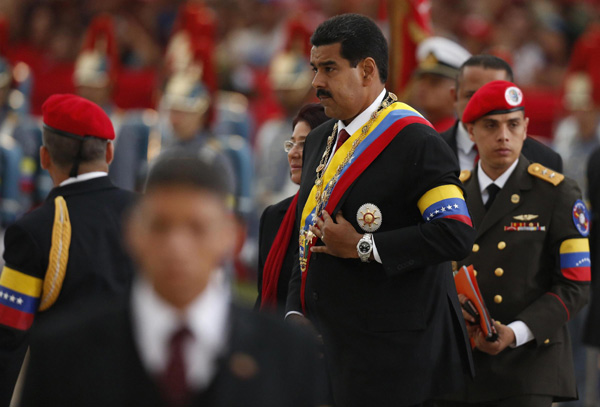 Venezuela's President Nicolas Maduro arrives with his wife, First Lady Cilia Flores to the military academy for a parade in Caracas April 19, 2013.[Agencies] |
CARACAS -- Nicolas Maduro was sworn in as the Venezuelan president on Friday in a ceremony at the National Assembly that was attended by representatives from more than 60 countries.
Analysts believe with a narrow win of 1.78 percent of the votes, the new administration of Maduro, political heir of late President Hugo Chavez, will face multiple pressures from all sides.
No Smooth Start
In the special session of the National Assembly, which was led by Speaker Diosdado Cabello, Maduro took the oath of office at the legislative palace, and was ready to give his first speech as president in front of 61 international delegations and 17 heads of state.
But just before starting his inaugural speech, Maduro was suddenly pushed aside by a man in a red shirt who ran on stage and grabbed the microphone shouting, "Nicolas, my name is Yendri, please help me ... "
The incident caused chaos in the audience and the live TV broadcast was cut off for a few minutes before the man was taken away by security guards.
Local analysts said that this curious episode may reflect the pressure Maduro will face from both inside and outside the ruling Unites Socialist Party of Venezuela (PSUV), after the death of Hugo Chavez, the spiritual pillar and the soul of the Bolivarian revolution.
Casting himself as Chavez's son, Maduro does not have the same charisma as his mentor. Although he had served as parliament speaker, foreign minister and vice president during Chavez's administration, it's Chavez who made most of the decisions and carried them out with a firm hand.
With a relatively mild character compared to his predecessor, Maduro may encounter more resistance within his party in the decision-making and implementation of his policies.
Serious Political Confrontation
In recent years, the confrontation between the ruling party and the opposition is becoming more violent, with increasing anti-government strikes and demonstrations.
Chavez managed to control the situation with a loyal army and his enormous personal influence and successfully secured his fourth re-election last year.
However, in the presidential election held Sunday, the ruling party lost nearly 700,000 votes compared to last year.
Maduro garnered 50.75 percent of the vote, compared with 48.97 percent for the opposition leader Henrique Capriles, a difference of just 265,000 ballots.
After the National Electoral Council (CNE) proclaimed Maduro as the winner, a large number of angry opposition protesters took to the streets across the country and confronted pro-government supporters and police, leaving eight people dead and 63 others injured.
Maduro accused Capriles of attempting a fascist coup after the violence. Capriles in return blamed Maduro for deceiving the public with election fraud and provoking violence to attribute the responsibilities to the opposition.
On Friday, Maduro called for dialogue with the opposition during his inaugural speech. He said he was willing to talk to Capriles to cease "hate" and "division" and guarantee the peace in the country.
"If there are differences you can keep them as you want, but if you accept my invitation, come with me, to construct the homeland, to build the future," he said.
Difficulties in Governance
The opposition narrowed its gap with the ruling party and attracted about half of all voters in the election, including some middle voters and Chavistas. It is an indication of discontent and frustration in the society, bringing more pressure to the new government.
During his 14-year mandate, Chavez made tremendous efforts in reducing poverty and improving people's livelihoods. Venezuela's extreme poverty rate stood at six percent in 2012, and was ranked as 71st out of 187 countries on the world's human development index.
However, the murder rate in Venezuela is ranked third in the world. Some79 percent of Venezuelans worry about personal security and violent crimes and foreign travelers are advised not to go outside at night.
Moreover, experts believe that the sustained high inflation rate, which has stayed above 20 percent for the past six years, remains a problem. The increased costs of products and services have reduced the quality of citizens' lives.
Although the government predicted that the inflation rate would be 14 to 16 percent this year, experts believe that the rise is a structural problem in the country and can not be easily tamed.
"We're going to have inflation that should not be lower than 25 percent, between 25 and 30," local economist Luis Oliveros told Xinhua recently.
Meanwhile, the country's oil production, a main source of the country's fiscal revenue, has also decreased compared with 14 years ago, due to the lack of large-scale investment in the industry.
Analysts said if these situations cannot be improved significantly in the short term, the opposition may initiate a referendum in accordance with the constitution to depose Maduro when he completes half of his six-year term.
Thus, Maduro faces pressure to build his personal prestige as soon as possible within the ruling party and solve the social and economic problems in the country.
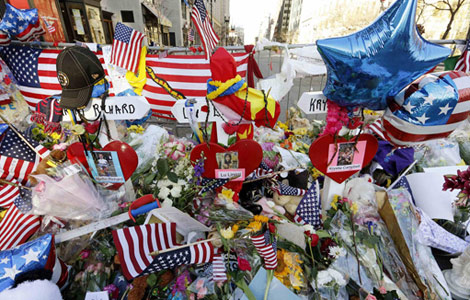
 Chinese victims' families arrive in Boston
Chinese victims' families arrive in Boston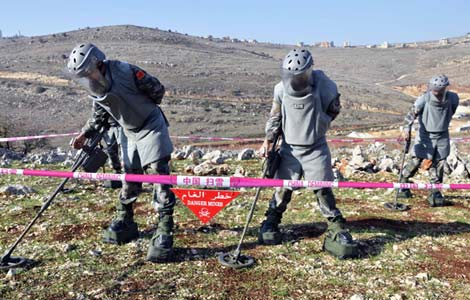
 Chinese soldiers clear mines, win hearts
Chinese soldiers clear mines, win hearts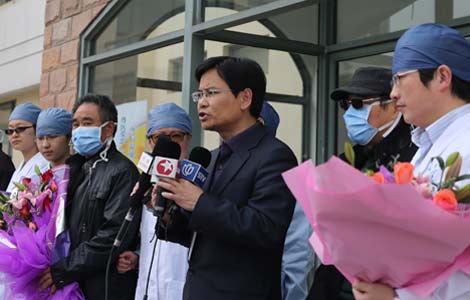
 More bird flu patients discharged
More bird flu patients discharged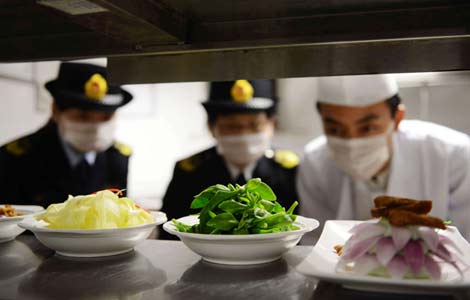
 Credibility still top concern for Chinese firms
Credibility still top concern for Chinese firms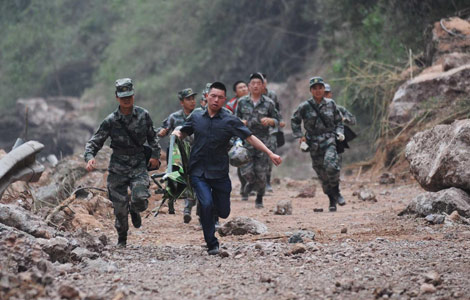
 Every second counts in rescue
Every second counts in rescue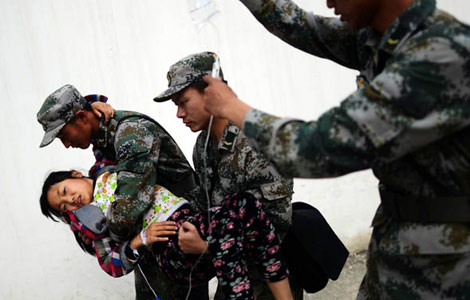
 Soldiers bring hope to earthquake-battered region
Soldiers bring hope to earthquake-battered region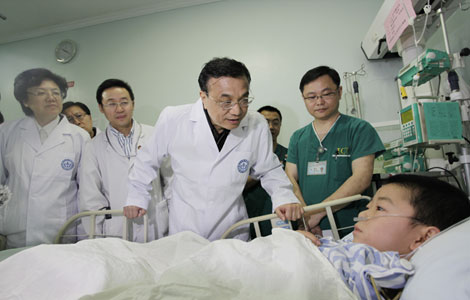
 Premier visits quake-affected in hospital
Premier visits quake-affected in hospital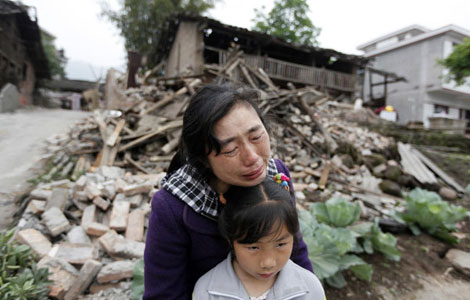
 Quake-affected people lose homes
Quake-affected people lose homes
Most Viewed
Editor's Picks

|

|

|

|

|

|
Today's Top News
Live report: 7.0-magnitude quake hits Sichuan
Chinese soldiers clear mines, win hearts
Intl scholarship puts China on the map
More bird flu patients discharged
County struggles to recover
Telecom workers restore links
Relief materials to reach quake zone
Govt: faster transfer for foreign quake aids
US Weekly

|

|






